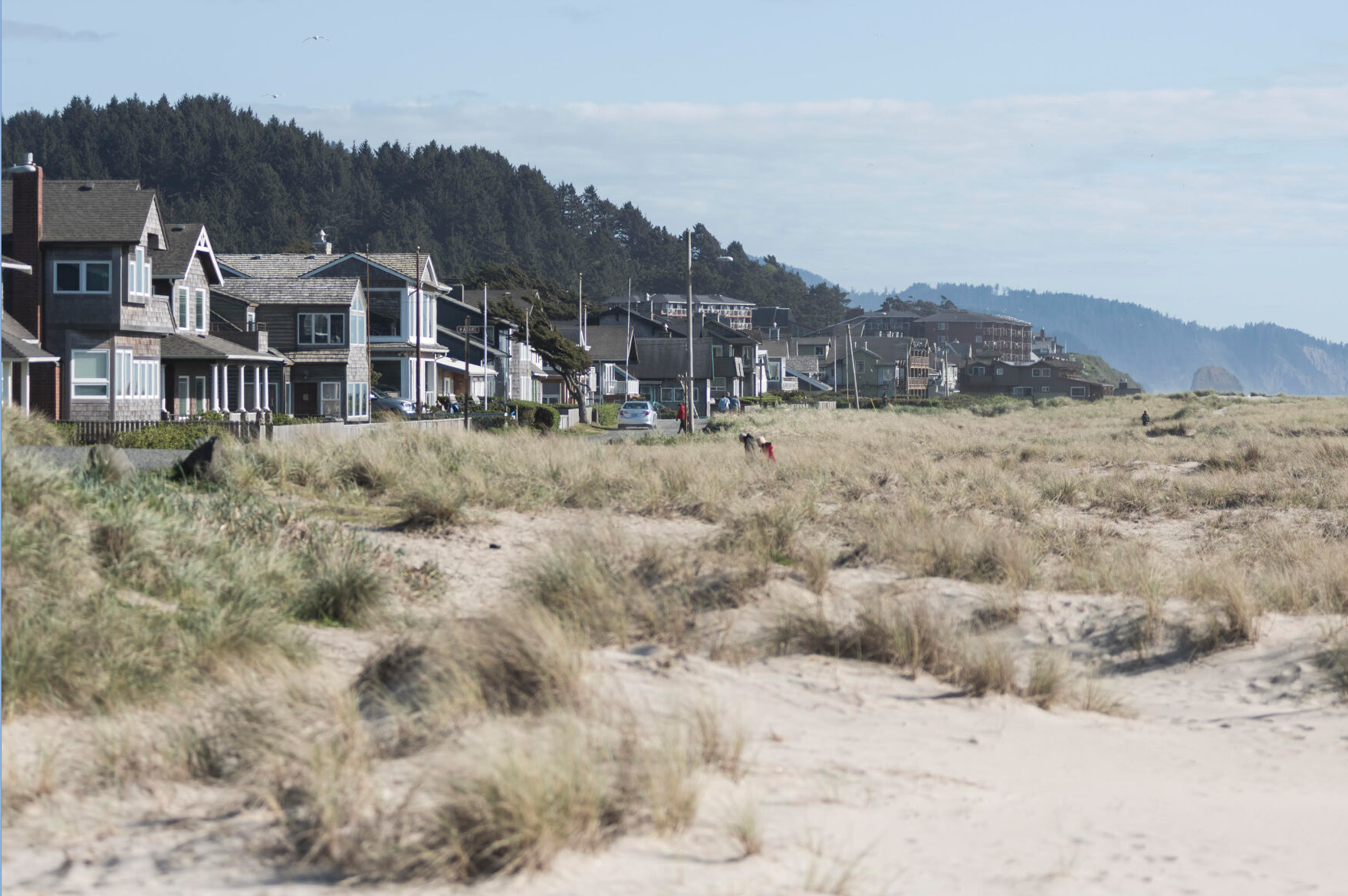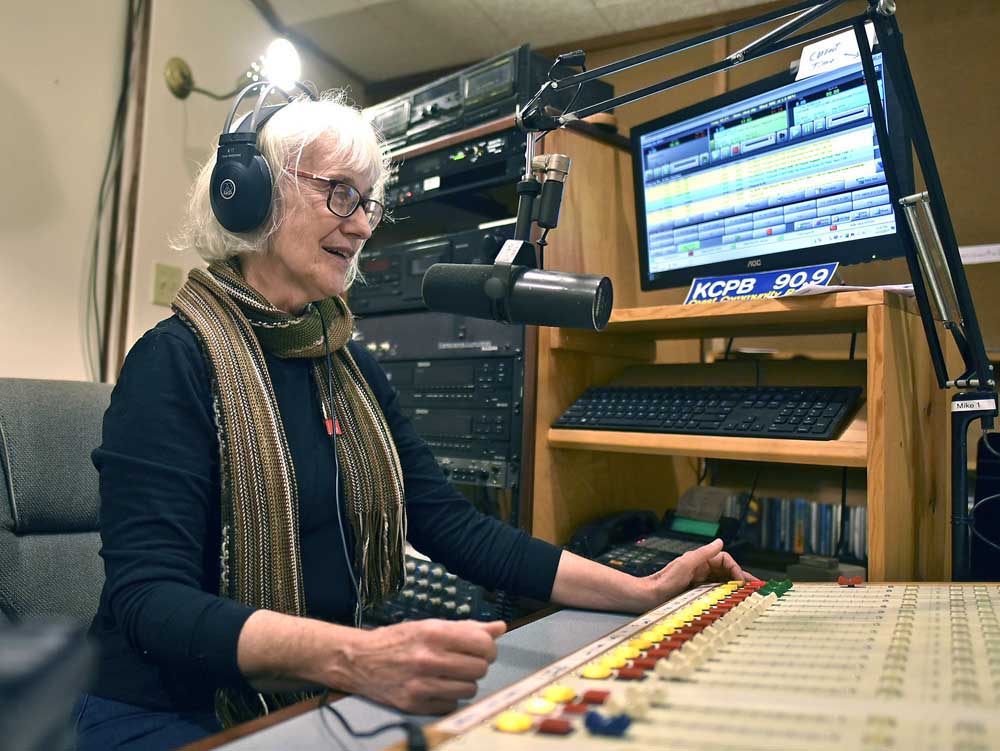Thousands honor astonishing vision and undaunted courage
Published 4:00 pm Sunday, January 19, 2003
Native Americans take center stage as Bicentennial kicks off”Who we are is in our stories.”
Trending
Two hundred years to the day after President Thomas Jefferson set in motion one of the most compelling stories in America’s history, thousands gathered on the lawn of his historic Monticello home in Charlottesville, Va. to, in the words of historian and keynote speaker James Ronda, “begin the journey again.”
An estimated 3,000 braved temperatures that barely climbed above the teens to hear a variety of dignitaries, including Interior Secretary Gale Norton, officially kick off the three-year-long commemoration of the Corps of Discovery’s trek to the Pacific and back.
Chinook Chief Cliff Snider, center, speaks with audience members after a panel discussion at the Jefferson’s West event in Charlottesville, Va.
Trending
TOM BENNETT – The Daily AstorianSaturday’s ceremony wrapped up “Jefferson’s West,” the week-long series of lectures, musical performances, art exhibits, informational displays and other activities, and the first of the 15 planned Signature Events to be held at various locations on the Lewis and Clark trail, including Clatsop and Pacific counties.
Topics of the program ranged from grand themes of exploration to the finer points of cooking buffalo meat. An estimated 1,000 people from around the country took part in the series of events, which took place at Monticello, the University of Virginia and other venues.
Meriwether Lewis, aka Scott Mandrell, left, inspects the rifle of a fellow member of the Discovery Expedition of St. Charles, Missouri at Saturday’s commencement ceremony at Monticello.
TOM BENNETT – The Daily AstorianAt Saturday’s ceremony, as a cold breeze chilled the audience, master of ceremonies Dayton Duncan tried to put the cold in perspective.
“It was 45 below zero at Fort Mandan that January in 1805 – this is nothing,” he said.
Norton read a letter from President George Bush, who had been invited to the ceremony but declined, citing prior commitments.
The Corps of Discovery journeyed into lands so unknown to Americans that some, including Jefferson, still believed wooly mammoths might wander the plains, Norton said.
“We begin to understand the complete lack of information, and the courage it took to journey into that unknown,” she said.
“The Bicentennial is a chance for Americans to think like Thomas Jefferson, and imagine what our country will look like centuries in the future.”
Interior Secretary Gale Norton speaks at Saturday’s commencement ceremony.
TOM BENNETT -The Daily AstorianTwo protesters took the opportunity of Norton’s appearance to unfurl a banner reading “Norton-Bush destroy what Lewis and Clark explored,” and called out “Shame on you, Secretary Norton” as she began to speak. She did not acknowledge them.
Ken Burns, producer of the 1997 PBS documentary on Lewis and Clark, eulogized author Steven Ambrose, whose history of Meriwether Lewis and the Corps of Discovery, “Undaunted Courage,” rekindled popular interest in the saga.
Tex Hall, also known as Red Tip Arrow, president of the National Congress of American Indians, pointed out that Native Americans numbered only a quarter-million a century ago, and today count 4.1 million members. “We are here, and we are alive and well,” he said.
Daniel Redelk Gear of Virginia’s Monacan Nation, who performed an honor song, reminded the audience that the Corps of Discovery succeeded only with the cooperation and assistance of the many so-called “hostiles” it encountered along the way.
“I ask you, how hostile were we?” he said.
Books change lives, Ronda said in his keynote address. A professor of Western history at the University of Tulsa and one of the foremost experts on Lewis and Clark, he said the book that changed Thomas Jefferson’s life, and the future of the young United States, was Alexander McKenzie’s account of his 1793 expedition across Canada to the Pacific Ocean, and specifically, the last few paragraphs of the book that suggested the land was ripe for occupation – by Britain.
The threat of foreign expansion helped prompt the expedition, but Jefferson also charged Meriwether Lewis with answering questions about a vast array of subjects, “questions about what Jefferson so gracefully called ‘the character of the country,'” Ronda said.
The Corps itself, with its “crazy quilt” ethnic mix that included Shoshone Indian Sacagawea, black slave York and half-Indian, half-French explorers, was a microcosm of the new nation, he said.
“What could be more American than this?” he said.
A large contingent from the Pacific Northwest attended the week-long program. Among them was Les McNary of Seaside, the president of the local Bicentennial organizing group. He and others from Clatsop and Pacific counties were looking for pointers on what to expect for the area’s own signature event in November 2005, “Destination 2005.”
“It’s been a good opportunity for us to observe, listen and learn,” he said.
McNary is in charge of bringing exhibitors to the exposition planned for the Clatsop County fairgrounds, and he checked out the dozens of organizations who attended “Jefferson’s West” to see who might fit in at Astoria.
“Out of the 50 vendors I have talked to, probably 30 will get a flier from Destination 2005 inviting them to come,” he said.
He and other organizers will probably attend another four Signature Events as the Bicentennial proceeds to find other potential participants, he said.









